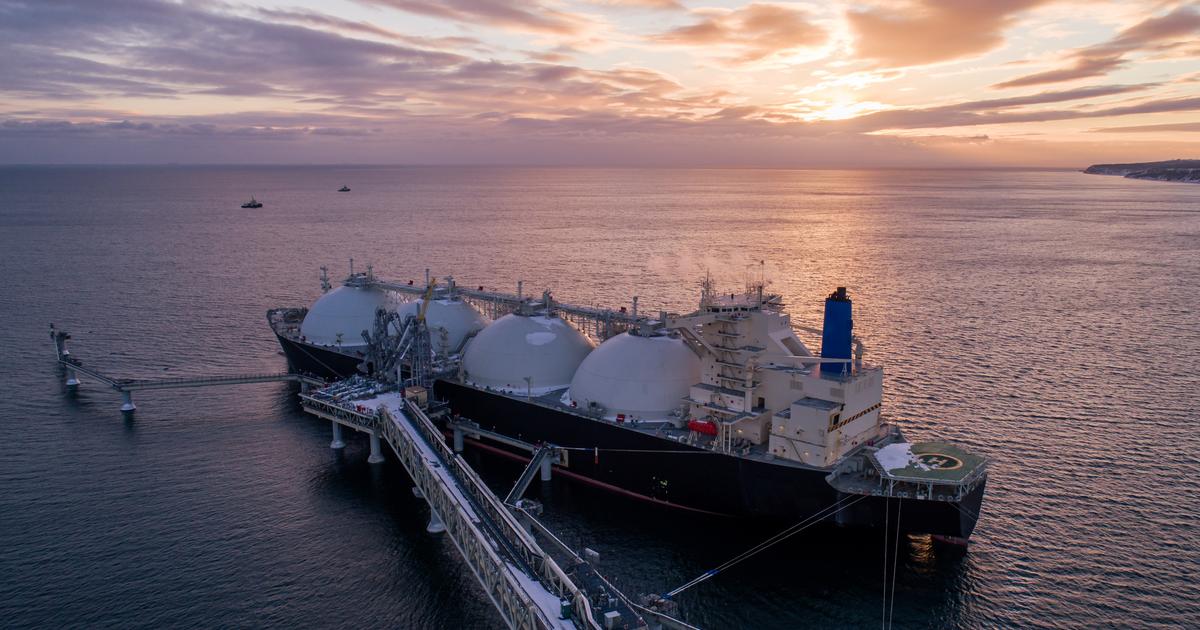The Kremlin has decided to cut off one of the key routes that supply gas to the European Union.
The state monopoly Gazprom has announced that it will suspend supply throughout the Yamal-Europe gas pipeline because the owner of the Polish section, EuRoPol GAZ, has been sanctioned by Moscow this Wednesday night, and the Government of Vladimir Putin demands that another company manage it .
This decision is added to the interruption this week of pumping through another pipeline that runs through Ukraine towards the community bloc.
Europe, which set itself the goal of reducing its imports of Russian gas by two thirds this year as punishment for the Ukrainian offensive, has seen the price of gas soar this day, which has risen by up to 20%.
More information
The war in Ukraine, live
The Yamal-Europe gas pipeline is over 2,000 kilometers long and runs from Torzhok, in western Russia, to the German city of Frankfurt am Oder, passing through Belarus and Poland.
Its maximum capacity is 33 billion cubic meters of gas per year, approximately what Spain consumes in a year, and 683 kilometers of its route run through Poland.
The Russian state monopoly Gazprom was a shareholder of the owner of this section, EuRoPol Gaz.
The
gas war
that began at the end of last year between Europe and Russia had left the future of the Yamal-Europe gas pipeline in the balance.
The canal has seen several interruptions in its supply since December and was now used to carry Russian gas to Germany through Poland.
Gazprom put another nail in the pipeline's coffin this week by announcing that it had reserved absolutely none of its supply capacity for the third quarter of this year.
"(The Kremlin) has prohibited making payments and transactions with sanctioned entities, in particular Gazprom, which means the veto on the use of this gas pipeline," explained a representative of the Russian company, Sergey Kuprianov.
The company denounces that its former Polish partner "has repeatedly violated Gazprom's rights" since April 26, when the Russian gas company fell under a new round of European sanctions.
“They prevented us from exercising our rights to the shares and other securities of EuRoPol GAZ and receiving dividends,” the spokesman added.
The Russian government approved this Wednesday night a list of 31 legal entities from around the world that are subject to its sanctions.
Among those sanctioned are not only American and European companies, but also from Asian countries such as Singapore.
The greatest repercussion of these punitive measures is that they affect the former Gazprom subsidiaries in Europe, including several French and German ones, which will prevent these gas pipeline and gas deposit operators from maintaining their business with Russia.
The only alternative will be for other companies to take their place.
Vladimir Putin's spokesman, Dmitri Peskov, stressed that "there will be no relationship with these companies, they have been banned and cannot participate (in the purchase of gas)", although he left the door open for others to replace them.
“You have to contact Gazprom for more details,” he added.
One of the countries affected is Germany, where Economy Minister Robert Habeck has stressed that the costs of new gas supplies will be more expensive.
“The inclusion of Gazprom Germany subsidiaries on the sanctions lists means that they have to renegotiate supply contracts.
These contracts will probably be concluded at higher prices, "he declared this Thursday, according to the Russian agency Tass.
This week a major bottleneck has arisen in Russian gas pipelines.
A day earlier, on May 10, the Ukrainian gas operator GTS reported that it would suspend supply to Europe through the Sojránovka station "due to force majeure".
A quarter of the Russian gas that crosses to Europe through Ukraine passed through this section, and kyiv requested to divert the pumping to another station that is under its control.
Gazprom rejected the proposal on the grounds that it is "technologically impossible".
Announcements of new restrictions on supply triggered the price of gas futures, which has risen as much as 20% on the TTF trading center in the Netherlands.
Thus, its cost has reached 114 euros per megawatt hour.
In addition to the closure of several gas pipelines, Gazprom announced in early May that it would stop pumping gas directly to Poland and Bulgaria because these countries had refused to participate in the mechanism devised by the Kremlin to exchange payments in dollars and euros for rubles.
This system theoretically establishes that buyers pay their contracts in the agreed currency in an account of Gazprom's financial arm, and Gazprom exchanges it for rubles on the Moscow Stock Exchange.
However, Warsaw and Sofia were suspicious that this would serve Moscow in the future to question the signed contracts if tension with the rest of Europe escalated.
Follow all the international information on
and
, or in
our weekly newsletter
.















